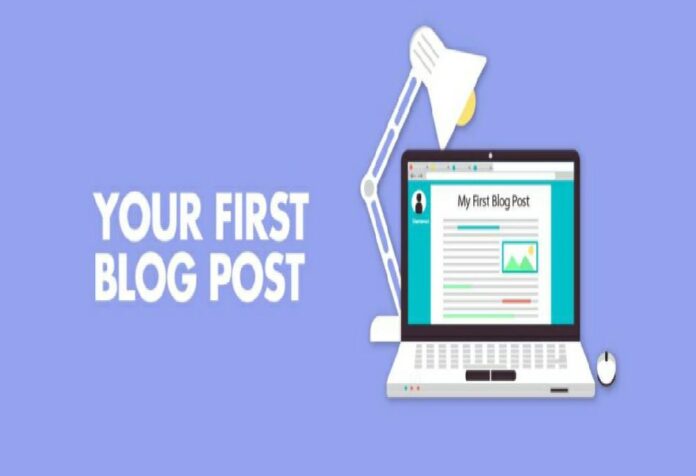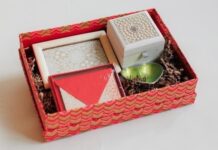Here are some important tips to write your first post in your new blog. Experts framed the best tips to give a boost tonew writers for their new blog.
Soon after you’ve set up your blog, you’ll need to start writing posts.
Your first blog post will serve as the primary basis of your blogging business. Get it wrong and you’re doomed to fail. But if you get it right, you’ll lay the proper foundation for success.
It doesn’t have to be anything mind-blowing, but you want your first set of visitors to come back to your blog after reading your first article.
You want to captivate them so much that they can’t help but tell their friends about this excellent blog they’ve just discovered (yours).
You want a life where no one will have the right to tell you what to do, how to do it, and when to do it. That’s what we all want, right?
And the truth is that blogging can afford us such freedoms and luxuries.
But in order to be able to get there, we need to make sure that what we’re doing is done right.
Most people don’t worry too much about this in the beginning. After installing WordPress, all most bloggers want to do is to publish anything just to let the world know that they’re online.
Sorry, it does not work like that.
The brutal truth is that if you fail to capture your first visitors’ interest at a deep level with your first article, you will lose them forever.
So with that scary truth bomb out of the way, let’s look at how to write a great first blog post.
How To Write Your First Blog Post
As a blogger who is just starting out, here are some things you should mention in your first post.
1. Who Are You?
You’ve just jumped into the online world, and no one knows anything about you. If I am supposed to trust you and bookmark your blog, then I will need to know who you are.
People want to connect with you on a deep level. Tell them:
What have been your experiences in life?
Is this your first blog?
Who are you as a person, as a professional, as a blogger?
The more you tell about yourself, the more readers will get used to you, and the more they will trust you and want to hear what you have to say.
Not only should you use your words to talk about yourself, but you should also show some pictures.
Don’t just be “the strange man behind the keyboard”.
Having your own pictures on your own blog will show authenticity, and your readers will start to trust you.
Bottom line, tell (and show) your readers all they need to know about who you are. The more information you give, the easier it will be for readers to connect with you.
2. Why Are You Blogging?
This is a really important point. If people don’t know why you’re doing what you’re doing, they’ll have no reason to trust you.
One thing you should do when answering this question is to keep your audience in mind.
Ask yourself:
Why would someone come to my blog?
What would they be looking for?
What’s in it for my readers?
Tell your audience why you’re there. They’ll appreciate it.
And they’ll want to connect with you.
3. What Are You Going To Be Blogging About?
This is similar to the second question. Once you’ve answered that one, this one becomes easier to answer.
Tell your audience what they should be expecting on your blog.
Let them know exactly what they will see every time they come to your site.
It can also be a good idea to let them know how often you’ll be updating the blog and at what days and time (if you’ve set a schedule).
Don’t create yet another generic blog where you will be writing about anything and everything. Make sure your blog is well-focused on a particular topic. This will boost your authority level and allow for your audience to see you as an expert in your field.
4. Who Are You Writing For?
In your first post, don’t forget to talk about your target audience.
Who are the people you will be writing for?
What are they like (ambitious, lazy, very busy, etc.)?
The point is for you to empathize with readers so that they will feel welcomed and trust that you understand their problems.
Come up with an emotional story, and let your audience know that you’re there for them.
5. How Can They Get Involved?
You need to let your readers know how they can get involved.
How can readers email you if they have questions, suggestions, or complaints?
You need to let them know they can reach out to you if they need to. Also, don’t be afraid to encourage disagreements.
Some of your readers will disagree sometimes, and if they can’t share those disagreements with you, they won’t trust you.
Therefore, do whatever you can to ensure that feedback is appreciated and encouraged.
If you prefer being contacted at a particular time of the day/week, let them know at what time it should be.
6. Clearly State Your Blogging Goals
This is a no-brainer. You should share the goals of your blog with your readers in your very first post.
What will you want the blog to be like in 3-6 months?
Sharing your goals with your readers will make them understand that you value transparency.
When you share your goals with them, they’ll want to help you achieve those goals.
Writing Your Introduction Blog Post
Starting a blog is not always the main thing; you also need to make sure you start right. If your first blog post contains all the elements I mention here, then you’re off to a good start.
Make sure they know that you are an open, honest, and passionate blogger.
Make them understand you’re not here to sell them some snake oil.
Let them know that you’re here to help.
What kind of things do you recommend putting in a blogger’s first blog post? What things do you have in your first post? Let me hear your thoughts in the comments below!
Like this guide? Don’t forget to share it! #KhabarLive #hydnews







